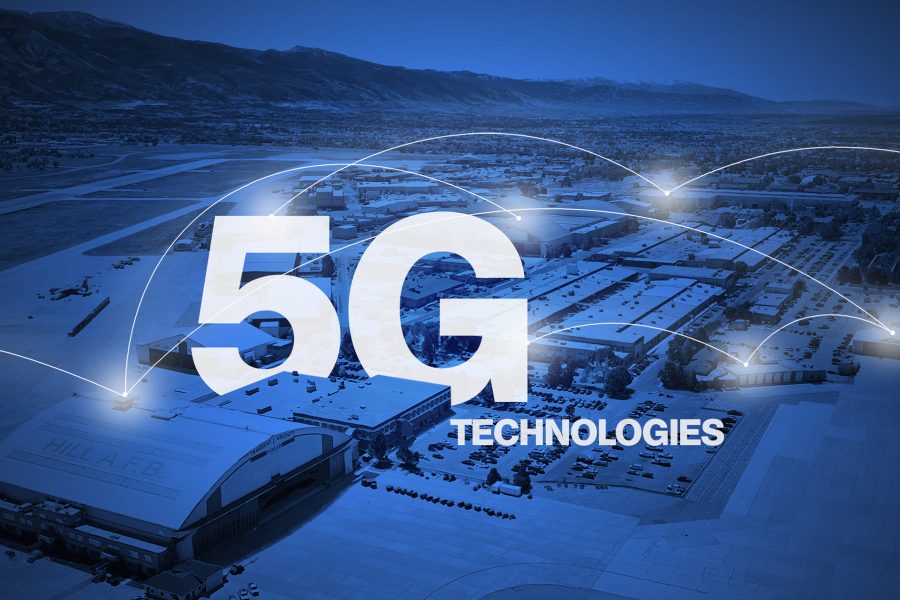Work is kicking off to bring fifth-generation wireless network-enabled tools to Hill Air Force Base, Utah, and Joint Base Lewis-McChord, Wash.
The Defense Department recently released its final requests for prototype proposals as it looks to experiment with 5G’s military applications at Hill, JBLM, Naval Base San Diego, Calif., and Marine Corps Logistics Base Albany, Ga. The new generation of wireless technology promises to be a game-changer for the Pentagon, though it has much to learn about the specifics of using that technology.
“The government, in coordination with industry, will develop and mature … spectrum-access technologies to enable improved cognizance of spectrum activity, protection of U.S. activity in the electromagnetic spectrum domain, and the ability to relocate and/or share spectrum anytime, anywhere access is needed,” a March 17 notice said.
In one notice, DOD invites suggestions of ways to use 5G to support augmented and virtual reality simulation and training systems at JBLM. Ideally, 5G could offer greater data transmission that would allow for more complex AR and VR training software. JBLM will try to integrate the equipment prototypes created under the initiative into its existing training.
The solicitation calls for 5G prototype testbed and network enhancement ideas, which are due April 30, while suggestions of prototype apps are due May 15.
Another notice formalizes the push to understand spectrum sharing at Hill. The effort is exploring how airborne radar system and 5G-enabled cell phones can occupy the same part of the electromagnetic spectrum without causing interference issues. Proposals for Hill are due May 15.
That call for proposals invites offerors to build a “localized, private full-scale 5G mobile cellular network” so the Air Force can test how 5G affects airborne radio signals, according to the National Spectrum Consortium. DOD wants plans for upgrades that would allow spectrum sharing, and for a deployable “spectrum coexistence and sharing system.”
Research and development at Hill would also affect its Utah Test and Training Range, the largest military training area in the U.S.
Only members of the National Spectrum Consortium are allowed to submit proposals. The group brings together government, industry, and academia, to further America’s abilities on the electromagnetic spectrum via 5G and other technologies.
“We strongly encourage our members to collaborate and respond to these important RPPs to support innovation and make sure that the United States remains a global technology leader on 5G,” National Spectrum Consortium Chief Strategy Officer Joseph Dyer said in an April 1 release.
